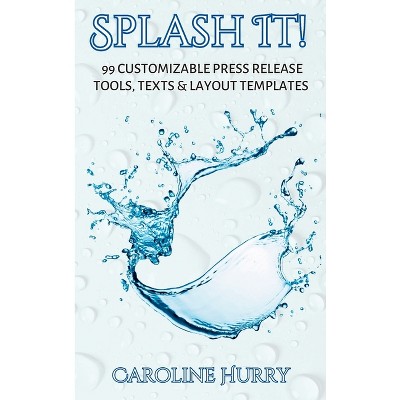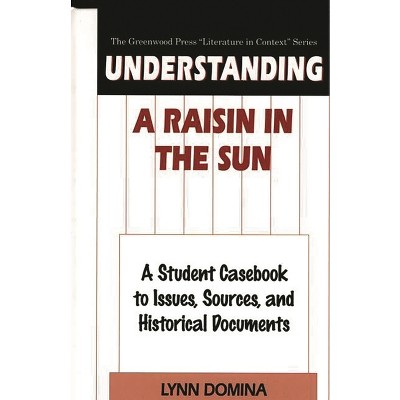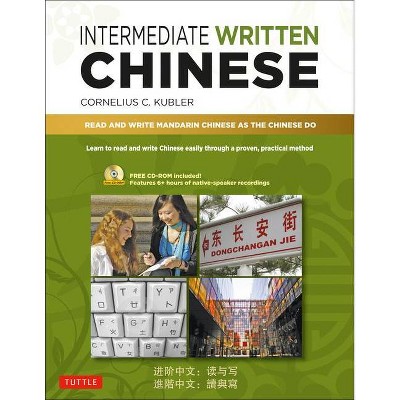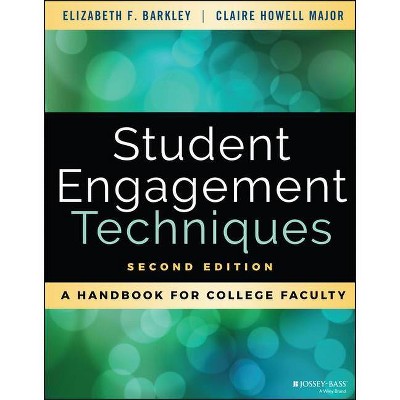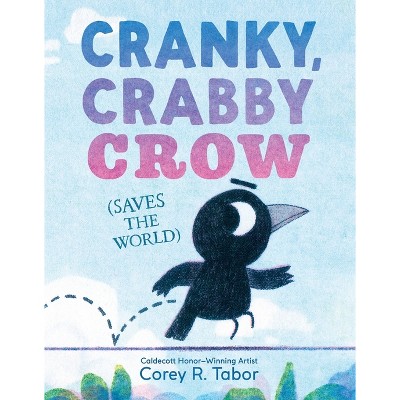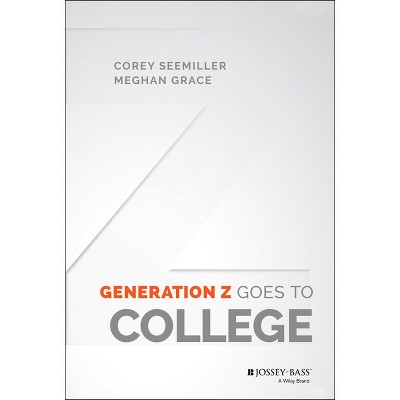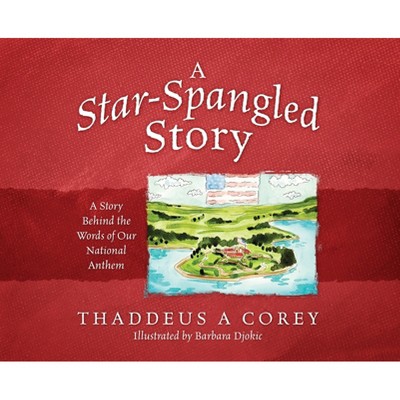Sponsored

Major Trade-Offs - by Corey Moss-Pech (Hardcover)
$115.00
In Stock
Eligible for registries and wish lists
Sponsored
About this item
Highlights
- An eye-opening look at the relationship between students' majors and their entry-level jobs.
- About the Author: Corey Moss-Pech is assistant professor of sociology at Florida State University.
- 224 Pages
- Education, Higher
Description
About the Book
"Many a humanities major has been asked the dreaded question, "So, what are you going to do with that?" The common wisdom is that college programs in the humanities encourage a lot of high-minded thinking useless outside of a rarefied college campus. This new book from CoreyMoss-Pech shows us that not only do humanities majors learn skills, they actually use them when they graduate. They learn to write documents necessary in the modern workplace and master linguistic nuance. Their seemingly practically-minded peers-graduates of business or engineering programs-often find themselves doing data entry and other clerical tasks after graduation-jobs you don't necessarily need a degree to perform. Despite this discrepancy, graduates with practical arts degrees are much more likely to find jobs, and they earn far more money. What factors lead to this undervaluing of a liberal arts education despite the useful skills those students acquire? Moss-Pech conducted interviews with roughly ninety students from four majors-Engineering, Business, English, and Communications-at a large Midwestern state school. He follows these students through their senior years and after graduation as they looked for and started new jobs and established social identities outside of school. Differences in career outcomes for these students, it seems, begin during college. Universities and large firms provide a number of internship programs to practical arts majors, which often open the door to a job postgraduation. On the other hand, liberal arts students are largely left to carve out their own paths. They struggle to find work after graduation, even with multiple internships under their belts. Moss-Pech calls this discrepancy the paradox of marketability: the labor market doesn't value the skills liberal arts students learn, whereas practical arts graduates are highly sought-after, even if their skills are not. The blame doesn't just lie with the labor market, though: Schools are perpetuating the myth that practical arts majors are more valuable, inadvertently contributing to a less-prepared workforce. If universities recommit to the value of the liberal arts as skill-based learning, Moss-Pech argues, the labor market will begin to reward them for their quality educations"--Book Synopsis
An eye-opening look at the relationship between students' majors and their entry-level jobs. Humanities majors are used to answering the question, "So, what are you going to do with that degree?" The common misconception is that students in humanities programs don't learn any useful skills for the real world. In Major Trade-Offs, sociologist Corey Moss-Pech argues that not only do humanities majors learn real-world skills, but they actually use them when they graduate. Despite this discrepancy, graduates with so-called practical degrees like business and engineering are much more likely to find employment, and they earn higher salaries. Why do we belittle a liberal arts education despite the valuable skills that students acquire during their studies? Major Trade-Offs addresses this question by following students from different majors as they enter the workforce. To understand the relationship between majors and entry-level jobs, Moss-Pech conducted nearly 200 interviews with roughly ninety students from four majors at a large Midwestern university: engineering, business, English, and communications. He follows these students through their senior years, chronicling their internships and the support their universities provide in helping them pursue their career paths. He found that graduates from practical majors entered the labor market successfully, typically through structured internship programs. However, many ended up in entry-level jobs that, while well-paid, were largely clerical and didn't necessarily require a degree to perform. On the other hand, liberal arts majors rarely accessed structured internships and were largely left to carve out their own paths, but did use their degree skills once they secured a job. These results challenge popular myths about the "marketability" of these different majors and offer a new vision for the future of higher education. Liberal arts skills are essential in the labor market, and yet educators and policymakers still push resources into the practical arts, perpetuating the myth that those majors are more valuable while depriving students of a well-rounded education and leaving them no better prepared for the workforce than liberal arts students. Of interest to students, educators, and employers, Major Trade-Offs calls on colleges and universities to advocate for liberal arts majors, leveling the playing field for students as they plan for entry-level work.Review Quotes
"Folk wisdom tells students and parents that practical majors are the most secure pathway to a good job and a good life. Major Trade-Offs turns this thinking on its head, showing how recent graduates in the liberal arts are uniquely positioned to use what they have learned in their work. What is college for? And what kinds of jobs offer worthwhile work for college graduates? Corey Moss-Pech raises these important questions, giving us a rare glimpse into how college students are entering the workforce today, and what awaits them in their work."
--Natasha Quadlin, University of California, Los Angeles"Major Trade-Offs upends conventional wisdom about which college majors lead to job-relevant skills and raises critical questions about whether students really need practical majors to prepare for careers--or whether what they're really getting is access to a hiring pipeline. A real achievement."--Elizabeth Popp Berman, author of 'Thinking like an Economist: How Efficiency Replaced Equality in U.S. Public Policy'
"Moss-Pech exposes the too-simplistic dichotomy dividing "good" practical majors from 'bad' liberal arts training. Adding nuance to how we think about the links between education and early career occupations, this book should be read by anxious students and parents, recruiters and employers, and all campus leaders who prioritize STEM and pre-business programs over the humanities and social sciences."--Amy J. Binder, coauthor of 'The Channels of Student Activism: How the Left and Right Are Winning (and Losing) in Campus Politics Today'
About the Author
Corey Moss-Pech is assistant professor of sociology at Florida State University.Dimensions (Overall): 9.0 Inches (H) x 6.0 Inches (W) x .63 Inches (D)
Weight: 1.04 Pounds
Suggested Age: 22 Years and Up
Number of Pages: 224
Genre: Education
Sub-Genre: Higher
Publisher: University of Chicago Press
Format: Hardcover
Author: Corey Moss-Pech
Language: English
Street Date: May 6, 2025
TCIN: 1006101911
UPC: 9780226840208
Item Number (DPCI): 247-50-2923
Origin: Made in the USA or Imported
If the item details aren’t accurate or complete, we want to know about it.
Shipping details
Estimated ship dimensions: 0.63 inches length x 6 inches width x 9 inches height
Estimated ship weight: 1.04 pounds
We regret that this item cannot be shipped to PO Boxes.
This item cannot be shipped to the following locations: American Samoa (see also separate entry under AS), Guam (see also separate entry under GU), Northern Mariana Islands, Puerto Rico (see also separate entry under PR), United States Minor Outlying Islands, Virgin Islands, U.S., APO/FPO
Return details
This item can be returned to any Target store or Target.com.
This item must be returned within 90 days of the date it was purchased in store, shipped, delivered by a Shipt shopper, or made ready for pickup.
See the return policy for complete information.
Trending Non-Fiction

$19.31
was $20.98 New lower price
4 out of 5 stars with 58 ratings

Discover more options

$5.99 - $9.49
MSRP $5.99 - $16.99
5 out of 5 stars with 1 ratings



